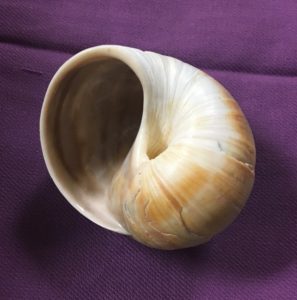 On Ash Wednesday I took tentative steps into the Lenten season. I wasn’t sure what disciplines to embrace, but that morning I lit a candle and sat quietly in prayer before going through liturgical readings for the season. I attended a noon service and stood in line to receive ashes on my forehead, remembering that I was dust and someday, to dust would return.
On Ash Wednesday I took tentative steps into the Lenten season. I wasn’t sure what disciplines to embrace, but that morning I lit a candle and sat quietly in prayer before going through liturgical readings for the season. I attended a noon service and stood in line to receive ashes on my forehead, remembering that I was dust and someday, to dust would return.
After work I made a few calls checking on a friend who had undergone surgery for a broken hip, chatting with a daughter who was celebrating a birthday, and catching up with someone I hadn’t seen in a while.
Then again, a prayer candle burned as I read through the lectionary one more time. Lent is full of powerful readings.
They include passages that remind us the most important commandment is to love and care for others, especially the least among us. And when we do, Jesus tells us, we are caring for him. Isaiah insists that the sacrifices God wants aren’t the drooping of ash-covered heads or the rending of garments.
That’s not the drama the Holy One desires. No, the desired actions are more along the lines of freeing the oppressed, sharing food, taking care of the marginalized, being civil in speech, and working for justice – all facets of the Love commandment.
There’s the Samaritan woman who’s the first to recognize Jesus as the Messiah. After accepting the truth about her own life and also the love offered to her by Jesus, she hurries back to town, telling everyone that she has met the Messiah, right over there at the community well.
Instructing the people to repent of their wrongdoing, Nineveh’s king showed humility and sincerity that changed God’s mind about destroying the city. Queen Esther beseeches God for help in foiling the enemy’s plan and turning her husband’s heart in order to save her people.
These are just a smattering. But in the midst of the more grand and familiar passages sits a small one from Isaiah, just two verses. They grab my heart. Maybe it’s the simple comparison of the life-bringing fall of rain and snow onto the earth to the transforming entrance of God’s word into the universe:
Just as from the heavens / the rain and snow come down / And do not return there / till they have watered the earth, / making it fertile and fruitful, / Giving seed to the one who sows / and bread to the one who eats, / So shall my word be / that goes forth from my mouth; / It shall not return to me void, / but shall do my will, / achieving the end for which I sent it.
I’m not sure how that works, but it is hopeful in a time when hope is difficult to find.
This passage reminds me of short poem, Indwelling, by Thomas E Brown, an 19th century scholar, teacher, poet, and theologian born on the Isle of Man.

PHOTO: Mary van Balen
If thou could’st empty all thyself of self,
Like to a shell dishabited,
Then might He find thee on the ocean shelf,
And say, “This is not dead,”
And fill thee with Himself instead.
But thou are all replete with very thou
And hast such shrewd activity,
That when He comes He says, “This is enow
Unto itself – ’twere better let it be,
It is so small and full, there is no room for me.”
… … …
The connection between the two? Indwelling suggests to me why God’s word does not return without doing what it was sent to do. It is a living Word that dwells within each of us. As Brown writes, the more we empty ourselves of false selves, of cluttering activity, the more Divine Love can fill us and do its work.
We participate in the Word fulfilling mission – as Jesus prays at the Last Supper – to bring all together in love, united with the One who sent him.
Whatever disciplines fill Lent, may they be ones that allow more Love to enter in.
© 2020 Mary van Balen
